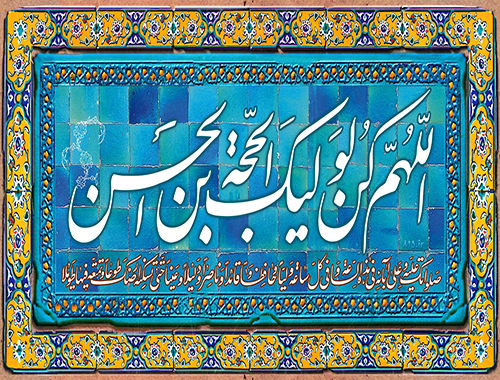Transfer of Ownership
- Details
- Hits: 2595
Transfer of Ownership
It is a right of the owner of a thing to be able to transfer it to others. In certain cases this transfer instead of being voluntary is forced.
A voluntary transfer takes place by means of a transaction and a forced transfer through inheritance etc.
Transactions
There are many kinds of transactions depending on their purpose, and in various economic systems they take different forms. Every transaction has its own rules. In this book we mention some of the most common forms of transactions, such as:
(1) Sale: It means the transfer of a determinate commodity in exchange for another commodity or money, such as the sale of a house. In financial and other similar transactions money is exchanged for another money.
(2) Gift: It means the transfer of a property or a sum of money to someone else as a present, either totally without compensation or accompanied by the acceptance of a present or gift made by the other party.
(3) Loan: It means the transfer of a property or a sum of money on the condition that its equivalent will be returned after the expiry of a fixed period.
(4) Mortgage: It means putting a thing in pawn, that is handing over property by a debtor to his creditors as a security for the debt with the promise that it shall be returned on payment of debt. If the creditor fails to pay the debt, the creditor can sell the property to satisfy his debt out of the sale proceeds in accordance with the relevant rules and hand over the surplus money, if any, to the owner of the mortgaged property.
(5) Letting: It means a transfer of the right of enjoying the use and advantages of property (and not its ownership) for a fixed period in consideration of a fixed rent, such as the letting of a house, a store, a car, an aeroplane etc.
(6) Borrowing: It means giving by a person of a thing to another person intending that the latter should enjoy its use gratis and return it. For example you lend your bicycle or car to a friend for going to a certain place and returning it to you after coming back from there.
There are two ways of effecting this kind of transaction. Either it may be stipulated that if the bicycle or the car in question is damaged, the borrower will be responsible, or no such condition is made.
In the first case the borrower will be responsible to make amends for any loss or damage. In the second case he will not be held liable if the bicycle or the car is destroyed or damaged without his fault.
(7) Guarantee: It means taking responsibility for the payment of debt incurred by another person. In this case if the debtor does not discharge his obligation, the guarantor is liable to make the payment. This is one of the most ancient forms of insurance. Most of the latest forms of insurance are also a kind of guarantee developed according to modern needs.
Those forms of insurance that do not fall under the category of guarantee, may be regarded as new and independent kinds of transaction. They will be governed by the general Islamic laws regarding transactions and contracts.
General rules of transaction
In all transactions the following rules must be observed:
(1) The two parties to the transaction must be adult.
(2) Besides being adult, they must be mature, viz. within the usual limits they must be able to understand the nature of the transaction. A transaction effected by a lunatic or an idiot, not having sufficient judgement and understanding has no legal value.
(3) A transaction must be effected voluntarily. If effected under duress, it will have no legal value.
(4) A person effecting a contract must not have been placed under inhibition and restrained from alienation and disposition of property. The competent authorities may pass an interdiction or prohibitory order restraining all alienations by an insolvent.
(5) The two parties should have an adequate knowledge of the subject‑matter of transaction in regard to its quantity and main characteristics such as its colour, shape, design, location, method of use etc. There should be no ambiguity which may cause any dispute subsequently.
If the parties concerned decide to effect a transaction without being meticulous about the details of the subject of transaction, the deal should be based on a compromise either with or without some recompense.
(6) The transaction which is being entered into should not be a help to sin, injustice or corruption. As a rule it must not involve a violation of any sound law.
(7) Every transaction should be clear and free from every kind of fraud and deceit. A purchaser should have no fear that defective goods will be passed to him or that he will be over‑charged. Such suspicion and lack of confidence is the source of much bitterness in individual and social life.
Imam Ali (P) is reported to have said:
"Allah loves an honest professional". (Wasail al-Shi’ah; vol. 12, p. 96).
In the course of a lengthy tradition the holy Prophet is reported to have said: "He who cheats the people in the transactions is not a Muslim". (Wasail al-Shi’ah vol. 12, p. 210).
Imam Ja'far al‑Sadiq (P) is reported to have said:
"The holy Prophet forbade the adulteration of milk for sale by the admixture of water". (Wasail , vol. 12, p. 208).
Hisham ibn Hakam is reported to have said:
"I was selling sabiri cloth (a kind of fine cloth, the quality of which is difficult to ascertain in shade) in shade. Imam Musa al Kazim (P) passed by that way mounted on a horse. He turned to me and said: "Hisham to sell a thing in shade is a kind of fraud, which is forbidden". (Wasail al‑Shi'ah, vol. 12, p. 208).
Imam Ja'far al‑Sadiq (P) has said:
"It is prohibited to cheat a person who has not been meticulous about a transaction and has relied on you". (Wasail al-Shi’ah, vol. 12, p. 363).
Different kinds of sale
There are four kinds of sale dependant on whether the subject of sale and its price are delivered at the time of bargain or subsequently.
(1) Cash: Both the goods and the price are existent and are exchanged at the time of transaction.
(2) Credit: The goods are existent and are delivered to the purchaser immediately, but he pays the price subsequently.
(3) Forward sale/purchase: The goods are not existent, but the price is paid in cash.
(4) Speculation: Neither the goods are existent, nor their price is paid in cash. This kind of speculative transaction is void in Islam and has no legal effect. This kind of sale which now‑a‑days is considered to be normal in many cases, puts an extra burden on the consumer without the original producer gaining anything from the increase, in prices which go up unnecessarily with the intervention of additional middle‑men.
Speculative sale and as a rule any sale before taking possession of the goods is one of the main causes of the deviation of trade from its normal course. As we have already said the true role of a merchant is to undertake distribution of goods and to 'earn a reasonable profit in consideration for his labour. But in the case of speculative transaction there is no actual give and take and hence the question of distribution does not arise. The dealing is only verbal or at the most merely on paper. Its official recognition means that a buyer, without investing anything, purchases the goods in the air and subsequently sells them at a profit. The next buyer also does the same, and again secures further profit without carrying out the least work of distribution. The only effect of such a transaction is the unnecessary increase in the number of the middlemen and their commission, leading to the false increase in the price. The producer and the real distributor not only are not benefited by this increase, but have to bear an extra burden as consumers.
A careful study of the Islamic traditions will show that in Islam special heed has been given to this economic deviation. We have already quoted a saying of Imam al‑Kazim (P) in regard to the sale of the goods before taking possession of them.
Necessity of knowing the laws of trade
Anybody who wants to start any kind of business should first make himself conversant with the religious laws of trade so that he may not be involved in unlawful activities and may not harm the society.
Imam Ali (P) has been reported to have said on many occasions:
"First law, then trade".
Some of the recommendations made by Islam in this behalf are the following:
There should be no dispartity in the price of a commodity quoted to different customers.
The seller should not be severe and rude to the customers while bargaining.
He should not hesitate as far as possible to take back a sold item if a customer so desires.
There is a tradition which says:
"On the Day of Judgement Allah will forgive the mistakes of a person who takes back the goods sold to a Muslim".
He should abstain from swearing even if the subject of oath is true. He should point out if the goods are defective. He should not praise his goods too much. Similarly the buyer also should not disparage them.
He must strictly abstain from under‑weighing and regard it as a deadly sin. He should always keep in mind what the holy Qur'an says in this respect:
`Alas for the defrauders who when others measure for them, demand it full. But when they measure to others or weigh for them, they defraud them! Do they not think that they will be raised to life again on a fateful day: The day when all mankind will stand before the Lord of the universe?" (Surah al‑Mutaffifin, 83:1 ‑ 6).
It may be pointed out that under‑weighing should not be regarded as confined to trading only. It has a far wider significance. At every stage of social life one should behave towards others as he expects them to behave towards him. It is not only those who handle a weighing balance that under‑weigh.
Revocation of contract
The parties to a contract of sale have a right to revoke if for a number of causes. It can be revoked:
(1) In the case of animals within, three days, a period during which all the characteristics of the animal should become clear.
(2) Before the parties disperse and leave the place where contract was made.
(3) If it is discovered that either party has been wronged to an appreciable extent.
(4) If the purchaser of an article subsequently discovers a defect in it.
(5) If the purchaser unduly delays the payment of the price.
(6) If the seller fails to give delivery of the article sold.
(7) In pursuance of an option stipulated in the contract for one party or for both the parties.
Inheritance
Inheritance is the best known instance of the forced transfer of property from one person to other individuals.
On the whole inheritance has a natural basis. What is the natural incentive to make economic effort? Normally the foremost motive of everybody is to meet his own economic needs and those of his family.
There is no doubt that, this is not the only motive of all economic activity, but it cannot be denied that this is the most natural and the most common motive.
As we pointed out in the course of our discussion of the family one of the strongest family bonds is the economic tie and the mutual responsibility of members of a family to meet the needs of each other.
As it seldom happens that at the time of his death a man may not have even a suit of clothing, or a bedding consisting of at least a mat or a rough blanket, the question automatically arises with his death as to what should be done with his belongings, howsoever insignificant they may be.
The most natural answer to this question is that they should be put to the same use to which they were being put during his life time that is, to meet the economic needs of his family and near relatives.
If a person dies leaving no relative and no successor by contract, his property, whatever it may be, will go to the society in which he lived, and hence is given to the Bayt al Mall.
It may be mentioned that in Islam the official recognition of this natural transfer of the property of a deceased person to his relatives does not in any way imply that the hoarding of wealth for the heirs should become an economic goal of man.
There are many verses of the Qur'an and a large number of traditions which emphasize that the produce of the labour of man is meant to satisfy the needs of himself and his family and the society and not to be hoarded to serve as valuable treasure for himself and his wife, children and kinsfolk. We propose to quote a few verses and traditions as an example while studying the question of hoarding wealth.
Division of inheritance
All that is left by a man has to go to his near relatives, but how?
There are different methods of this division under various economic systems. Islam also has its own method, which is summarized hereunder:
According to the Islamic law of inheritance the relatives are divided into the following categories:
(1) Husband and wife.
(2) Parents, children and grand‑children.
(3) Grand‑father, grand‑mother, sister and brother, children of sister and children of brother.
(4) Paternal uncle, paternal aunt, maternal uncle, maternal aunt and their children.
(5) Those with whom the deceased entered into a reciprocal contract that they would pay any fine or compensation to which he might become liable.
Each of the husband and the wife inherits from the other in all circumstances. But in the case of others a sequence is observed. Besides the husband and wife the property of a deceased goes first to his father, mother, children and grand children. If he did not have father, mother, child and grand child, then the turn of the next category, viz. grand‑father, grand‑mother, sister and brother or their children comes. If there is none of this category also, then the inheritance will go to the next category, viz. uncle, aunt and their children; and so on.
The share of each heir has been fixed by Islam according to a regular scheme. To know the details a reference may be made to Articles of Islamic Acts (Islamic Seminary Publication) or to some other book on the subject of inheritance.











